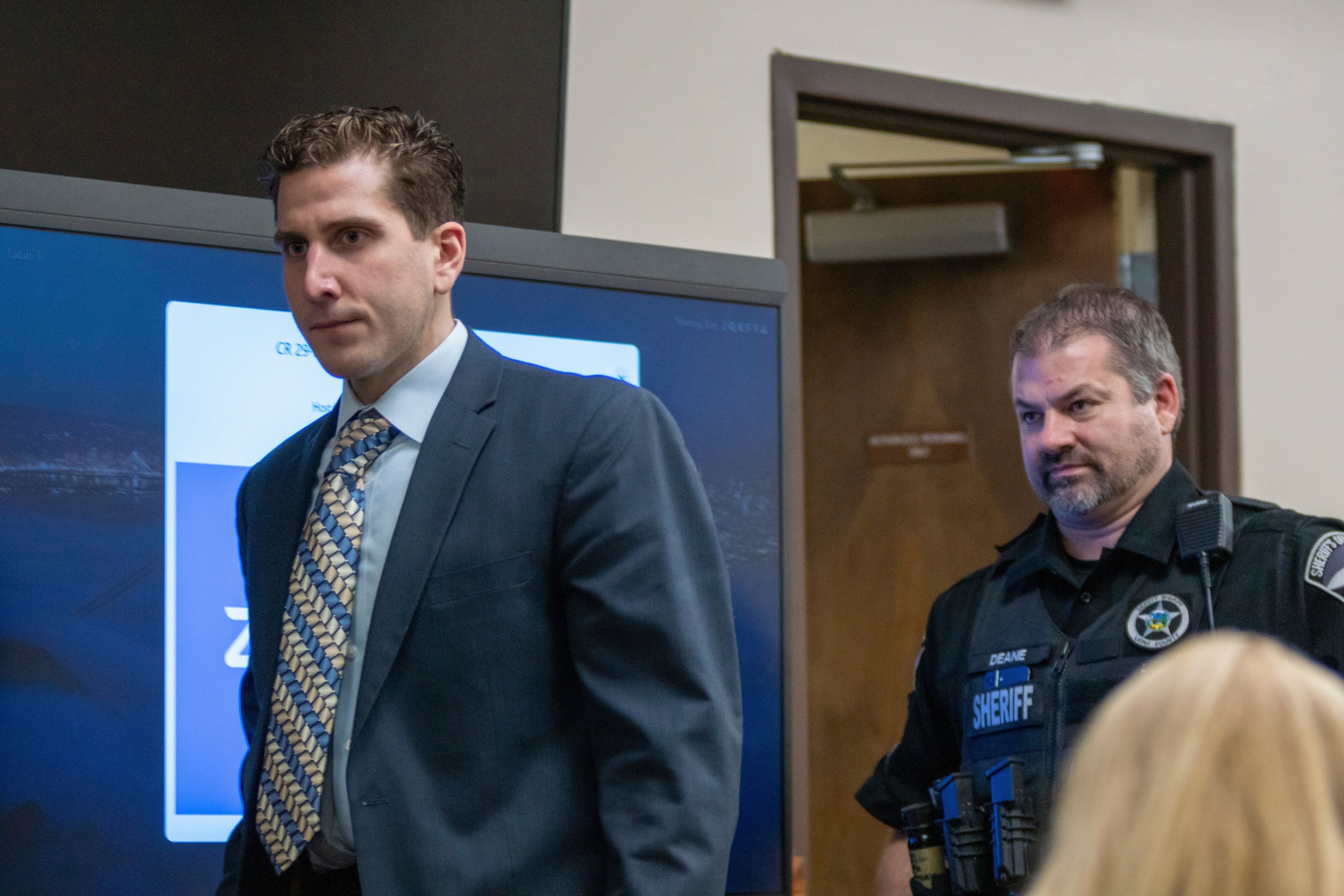Bryan Kohberger returns to court for fight to toss Idaho murders indictment
Prosecutors had previously asked for a trial date of summer 2024 for the man whose alleged crimes spread a wave of terror through the college community of Moscow, Idaho
A trial date is yet to be set in the case of Bryan Kohberger – the man charged with the murders of four University of Idaho students.
The 29-year-old criminology PhD student and accused mass killer appeared in Latah County Courtroom for two hearings on Friday – one of which was be livestreamed by the judge for the first time in the case’s history.
In the hearings, Mr Kohberger’s legal team made another bid to have his indictment dismissed and to unseal documents in the case, which Judge John Judge denied.
Prosecutors had previously asked for a trial date of summer 2024 for the man whose alleged crimes shocked America and spread a wave of terror through the college community of Moscow, Idaho.
On Friday, prosecutor Bill Thompson said: “I am still concerned about the victims and their families.
“They have suffered for well over a year now with a lot of uncertainty. And that’s painful, and it’s an everyday reminder, and they need some certainty and they need some closure in a timely fashion.

“But we know we also have to make sure, as Your Honor just said a few minutes ago, that we only do this case once.”
However, judge Judge did not set a date for Mr Kohberger’s high-profile quadruple murder trial – as had been expected – despite also raising concerns over further delay.
“My heart goes out to the victims. I can’t even imagine the pain, the grief... because you can’t really go forward with your life with this hanging over your head, so, I’m sorry,” he said.
Lawyers for Mr Kohberger argued that a more appropriate date would be summer of 2025, claiming that there was a mountain of evidence including thousands of photographs, videos, and over 400 witnesses to interview.
The 29-year-old is is charged with four counts of murder and one count of burglary over the brutal murders of Madison Mogen, Kaylee Goncalves, Xana Kernodle and Ethan Chapin.
In the early hours of 13 November, Mr Kohberger is accused of breaking into an off-campus student home on King Road, Moscow, and stabbing to death the four students with a large, military-style knife.
Two other female roommates lived with the three women at the property and were home at the time of the massacre but survived.
One of the survivors – Dylan Mortensen – came face to face with the masked killer, dressed in head-to-toe black and with bushy eyebrows, as he left the home in the aftermath of the murders, according to the criminal affidavit.
For more than six weeks, the college town of Moscow was plunged into fear as the accused killer remained at large with no arrests made and no suspects named.
Then, on 30 December, law enforcement suddenly swooped on Mr Kohberger’s family home in Albrightsville, Pennsylvania and arrested him for the quadruple murders.
Investigators said he was tied to the murders through his DNA found on a knife sheath left on the bed next to Mogen’s butchered body.
The motive remains unknown and it is still unclear what connection the WSU PhD student had to the University of Idaho students – if any – prior to the murders. The murder weapon – a fixed-blade knife – has never been found.

Mr Kohberger, who is facing the death penalty for the killings, has tried once already to get the charges thrown out.
That bid was rejected by the judge.
As a criminal justice PhD student at WSU, Mr Kohberger lived just 15 minutes from the victims over the Idaho-Washington border in Pullman.
He had moved there from Pennsylvania and began his studies there that summer, having just completed his first semester before his arrest.
Before this, he studied criminology at DeSales University under renowned forensic psychologist Katherine Ramsland who interviewed the BTK serial killer and co-wrote the book Confession of a Serial Killer: The Untold Story of Dennis Rader, the BTK Killer with him.
He also carried out a research project “to understand how emotions and psychological traits influence decision-making when committing a crime”.
In December, the student home where the murders took place was razed to the ground – a decision that divided the families of the victims.

